
BBC Learning LabToo Films 2012
Mon 9 Jul 2012
- BBC LabToo: Dingwall
- BBC LabToo: Elgin
- BBC LabToo: Lewis
- BBC LabToo: North Uist
- BBC LabToo: Shetland
BBC LabToo: Dingwall
The project involved a lot of learning for me Producing material for broadcast involves a higher technical and production specification than I am used to so it was good to broaden my knowledge in these areas Learning to work with other people in terms of producing material to be edited by other professionals was also new. I met quite a few folk involved locally in the industry and hope to work with them again in the future So, overall, it was a great experience.
Tim Flood, Producer, Dingwall
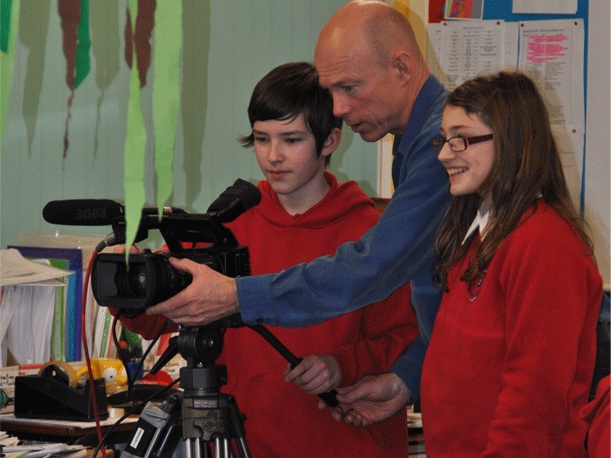
BBC LabToo: Elgin
Shooting a film for the BBC with a group of first-time filmmakers could be seen as a daunting task But the boundless enthusiasm and energy of our production group at Elgin High School created a real buzz around the project and the team just went from strength to strength Our first call-time was 5:30am and over 4 separate shooting days we filmed in 10 locations from the top of Ladyhill in Elgin to the fitting rooms in New Look.
On a professional level, seeing our film come through such a demanding editorial process was invaluable. We were shooting for a broadcast spec, working through daily rough cuts and a full online edit and sound mix. To be there from start to finish over a period of less than 3 weeks was immense. Our contributors and crew have built a strong team spirit and delivered a piece of honest and engaging broadcast content. It’s a privilege to work alongside other filmmakers from around the Highlands and Islands and with the wealth of experience and support provided by Amanda at ScreenHI it was a real boost to both my production knowledge and career aspirations.
Tom Duncan, Producer, Elgin
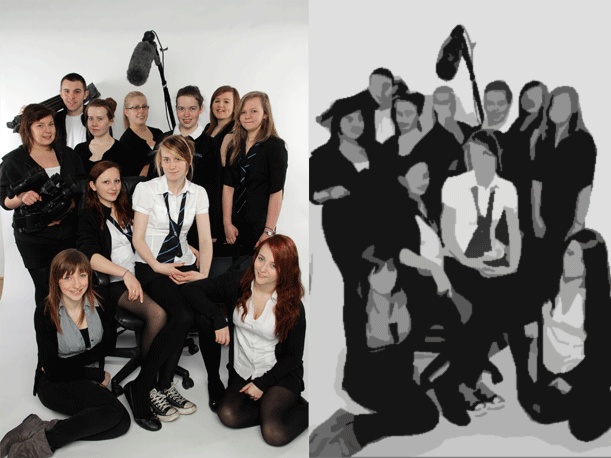
BBC LabToo: Lewis
I think the literacy film project is a great idea It supports those who suffer from literacy issues and it informs those who do not Perhaps, the biggest high I got from the film making was when one of the pupils confided that the film had allowed them to express for the first time their inner feelings about their literacy issues, and that they had been strengthened as a result.
I really enjoyed working with the pupils and was very impressed by their drive They were always on task and committed to achieving the day’s filming goals Everyone worked very hard as a group and wanted to make a film which would let others know how literacy issues affected them They also wanted the film to tell how they were treated by some people because of these issues and I respected their integrity in wanting to share these feelings I certainly gained a deeper insight into how young people can be affected by issues such as dyslexia and verbal dyspraxia They were a talented bunch and their literacy issues did not prevent them shining in other areas such as arts, crafts, technical skills and outdoor pursuits.
Roddy Maclean, Producer, Stornoway
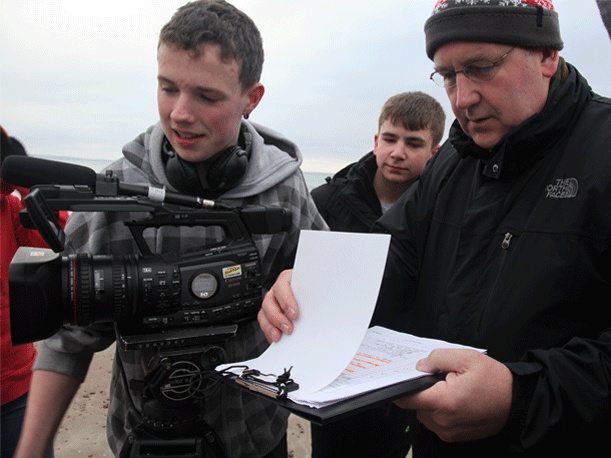
The highlights of the experience for me would include getting to work on a BBC project and knowing the high standards that it entails Seeing young people perform at their best in terms of teamwork, taking on responsibility and expressing themselves was great The honesty of the young people’s responses in the interviews; their willingness to open up about their experiences of literacy issues on camera was powerful and endearing It was interesting going out on location and seeing Stornoway through a lens and working with a director who took time to work with the young people and was open to their ideas It was fascinating looking at how the same story can be told from different angles celebrating young people’s achievements in a real and personal way.
Alison Johnston, Media Studies Teacher, Stornoway
BBC LabToo: North Uist
I was involved in working with the children from Paible School in North Uist who were a delight to have as a team. Our short film was based on an idea by the children themselves as they had been discussing novel means of global communication in the absence of digital technology. From this, the ’Message in a Bottle’ idea was born and the children not only contributed to the writing of the voice over dialogue, but also to all aspects of the filming process Most of the children either took turns of operating the camera, directing the shots or playing the parts required within the film.
As part of a project they had been working on in relation to global citizenship, the various classes were focused on nations who were not as advanced as we are in the Western world They chose to look at countries which shared similarities with the Uists in that they may have been isolated to a degree, or they may have depended on farming and fishing or were subject to extreme weather conditions.
Unfortunately for us, the weather conditions were severe on two of our filming days and we were forced to adapt our original film idea to suit I think considering this, the children who took part were a credit to their school They were keen to learn as much about the filming process as possible and also understood the restrictions which they were were faced with Most of the children showed promise as budding directors and others showed a natural on screen flair! At the end of the shoot, one small boy shouted ‘that’s a wrap’! He had obviously done this before!
It goes without saying that thanks should be given to the staff of Paible school, some of whom went to great lengths to acquire props for the shoot and to ensure that the children were all kitted out in the right attire for the conditions Particular thanks should go to the class teacher Miss Garbutt who conducted the whole process and ensured all the children were available and informed as to what we were trying to achieve.
Niall Campbell, Producer, Uist
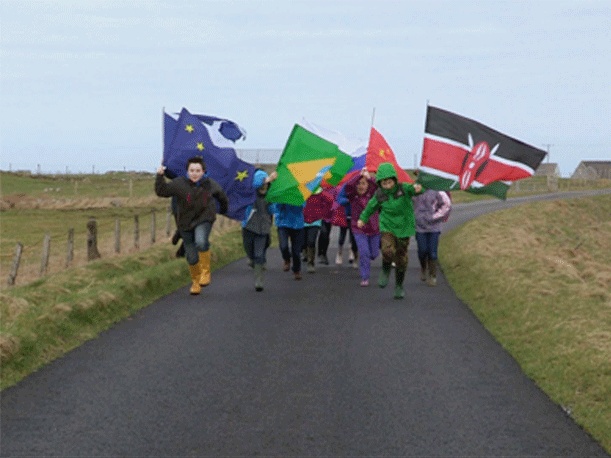
BBC LabToo: Shetland
For my part the experience of working with my group of young people was challenging to say the least Although it was a short film and I had 6 days to shoot it really was only on the last two days that I felt there was the familiarity with the camera to get the best out of the group Also the original story I had conceived changed dramatically during the shooting for several reasons so we ended up being quite short of material necessitating an extra trip to Shetland by producer Amanda This proved fruitful in the end, although one of our main contributors didn’t manage to turn up – another perennial problem when working with young folk! I must say I’ve learned a lot from this process, especially about the technical and aesthetic standards expected by a major broadcaster and I think all who took part came to realise that making a film is not an easy thing to do, but it is rewarding and I am sure they all took something from the experience.
Dave Hammond, Producer, Shetland
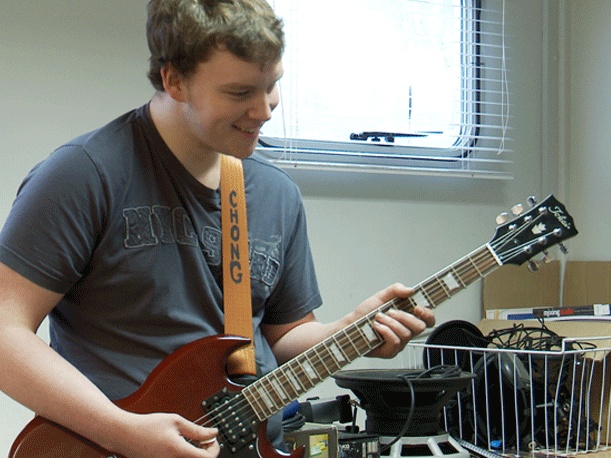




Socialise